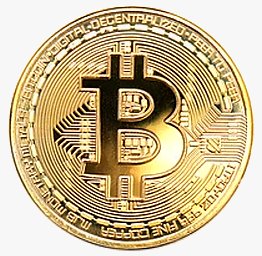Accredited InvestorsAltcoinAnatoli UnitskyAnti-Money Laundering (AML) In CryptoAPIArbitrageArtCoin TokenArticle DirectoryASICAuction Terminology GlossaryBasics of Stock Market InvestingBear MarketBest Crypto Payment Provider In the WorldBitcoinBlockchainBlockchain ConfirmationBlockchain Consensus MechanismBlockchain ForkBlockchain GlossaryBored Ape Yacht ClubBuild a Business That OutperformsBull MarketBuying SkyWay SharesByzantine Fault Tolerance (BFT) ExplainedCasascius CoinCentral Bank Digital Currency (CBDC)Centralized Crypto ExchangeCoinCoinsetCold WalletCollateralCommodity Futures Trading Commission (CFTC)Cross-Chain TechnologyCRUCrypto ExchangeCrypto GlossaryCrypto JokesCrypto Terms to KnowCrypto TickerCryptocurrencyCryptographyCryptojackingCryptounit BlockchainCryptounit GlossaryCryptounit ProgramdApp (Decentralized Application)Dead CoinDecentralized Exchange (DEX)Decentralized Finance (DeFi)Difference Between Bitcoin and EthereumDifferent Ways of Investing MoneyDigital CurrencyDistributed LedgerDo Your Own Research (DYOR)Dollar Cost Averaging (DCA)Dow Jones Industrial Average (DJIA)EncryptionERC-20ERC-721EthereumEvoScentFear Of Missing Out (FOMO)Fear, Uncertainty and Doubt (FUD)Fiat MoneyFNT Fintech CompanyGenesis BlockGlobal Unit PayGlossary of Banking TermsGlossary of Business TermsGlossary of Financial TermsHalvingHODLHot WalletHow Do I Start InvestingHow Rich is Satoshi Nakamoto?How to Create a BlockchainHow to Find Private InvestorsHow to Get Into FintechHow to Program Smart ContractsI Am Thrilled to Be a Part of This Global ProjectInitial Coin Offering (ICO)Initial Public Offering (IPO)Initial Token Offering (ITO)Innovation Basalt TechnologyInnovative Transportation TechnologiesInternational Bank Account Number (IBAN)Investing in Gold Mining StocksInvesting in Gold MiningJagerJoy of Missing Out (JOMO)Know Your Customer (KYC)LedgerLiquidity in CryptocurrencyMaker and Taker Fees in Crypto TradingMarket Capitalization (Market Cap)Meme CoinMetal Credit CardMetaMaskMillenials Now Have Access to Generational WealthMy Best Investment EverNew Digital EvolutionNFT GlossaryOff-Chain TransactionsOn-Chain TransactionsOpen Edition NFTPeer-to-Peer (P2P)Personal Loan GlossaryProbably the Best STO on the MarketProof of Stake (PoS)Real Estate Glossary of TermsReal Estate Investing GlossaryRebase TokenSecurities and Exchange Commission (SEC)Security Token ExchangesSecurity Token Offering (STO)Soulbound Decentralized Identities for Security TokensSoulbound ID Launch by Stobox Proves a SuccessSoulbound TokensStoboxStock Market GlossaryTestimonialsTether Platform and Token (USDT)UnitEx ExchangeUnitsky String TechnologiesUNTBUSDUValidatorWe Started Investing When We Were 25What are Blue Chip NFT?What are Blue Chip Stocks?What are Crypto Assets?What are Crypto Smart Contracts?What are CryptoPunks NFT?What are Digital Assets?What are Digital Collectibles?What are Gas Fees?What are Gas Wars?What are Hashmasks?What are Non Fungible Tokens?What are Non-Sufficient Funds (NSF)?What are Soulbound Tokens (SBT)?What are Stablecoins in Crypto?What are Transactions Per Second (TPS)?What are Utility NFTs?What are Utility Tokens?What Does Burning Crypto Mean?What Does Diamond Hands Mean?What Does Paper Hands Mean?What Does To The Moon Mean?What Does WAGMI Mean?What Happened to Satoshi Nakamoto?What is a 51% Attack?What is a Baby Boomer?What is a Backlink?What is a Banner?What is a Barcode?What is a Bid-Ask Spread in Crypto?What is a Block in Blockchain?What is a Block Reward?What is a Blockchain Address?What is a Blockchain Node?What is a Blockchain Oracle?What is a Blog?What is a Bond?What is a Bot?What is a Broker?What is a Business Accelerator?What is a Cash Cow?What is a Commercial Bank?What is a Commodity?What is a Con?What is a Credit?What is a Credit Limit?What is a Credit Rating?What is a Crypto Airdrop?What is a Crypto Bridge?What is a Crypto Scam?What is a Crypto Token?What is a Crypto Wallet?What is a Crypto Whale?What is a Crypto Winter?What is a Cryptocurrency Public Ledger?What is a Cryptocurrency Roadmap?What is a DAO?What is a Dark Pool?What is a Day Trader?What is a Dead Cat Bounce?What is a Default?What is a Derivative?What is a Digital Credit Card?What is a Fiscal Quarter?What is a Fungible Token?What is a Governance Token?What is a Grace Period?What is a Hard Fork?What is a Hot Wallet?What is a Hybrid Blockchain?What is a Hybrid PoW/PoS?What is a Joint Account?What is a Market Cap?What is a Merkle Tree in Blockchain?What is a Mining Farm?What is a Nonce? What is a PFP NFT?What is a POS System?What is a Prepaid Card?What is a Private Blockchain?What is a Private Key?What is a Public Blockchain?What is a Public Key?What is a Reserve Currency?What is a Ring Signature?What is a Routing Number?What is a Rug Pull in Crypto?What is a Safe Deposit Box?What is a Satoshi?What is a Security Token?What is a Seed Phrase?What is a Shitcoin?What is a Sidechain?What is a Soft Fork?What is a Spot Market?What is a State Bank?What is a SWIFT Code?What is a Tax Identification Number (TIN)?What is a Time Deposit?What is a Transaction Account?What is a Variable Interest Rate?What is a Virtual Assistant (VA)?What is a Virtual Card?What is a Virtual Currency?What is a Visa Card?What is a Whitelist in Crypto?What is a Whitepaper?What is Accounts Payable (AP)?What is AMA in Crypto?What is Amortization?What is an Accrual?What is an ACH Transfer?What is an Actuary?What is an Addendum?What is an Algorithm?What is an Angel Investor?What is an Annuity?What is an Asset?What is an ATM?What is an Atomic Swap?What is an Audit?What is an Avatar?What is an EIN?What is an Embargo?What is an Entrepreneur?What is an IDO (Initial Dex Offering)?What is an Interest Rate?What is an Internet cookie?What is an Investment Bank?What is an NFT Drop?What is an NFT Floor Price?What is an Ommer Block?What is an Orphan Block?What is an Outstanding Check?What is an Overdraft?What is Artificial Intelligence (AI)?What is B2B (Business-to-Business)?What is B2G (Business-to-Government)?What is Bartering?What is Bitcoin Dominance?What is Bitcoin Pizza Day?What is Blockchain Immutability?What is Blockchain Used For?What is BRICS?What is Business-to-Consumer (B2C)?What is C2C (Customer to Customer)?What is Capitalism?What is Catfishing?What is CFD Trading?What is Check Kiting?What is Cloud Mining?What is Communism?What is Content Marketing?What is Decentralization in Blockchain?What is DeFi in Crypto?What is Delisting?What is Depreciation?What is Digital Marketing?What is Diversification?What is Double Spending?What is Dumb Money?What is Dumping?What is Earnings Per Share (EPS)?What is Economics?What is Email Marketing?What is Equity?What is Etherscan?What is Fintech?What is Foreign currency?What is Forex?What is Fundamental Analysis (FA)?What is GameFi?What is Generative Art NFT?What is Gwei?What is Hard Currency?What is Hash Rate?What is Hashing in Blockchain?What is Inflation?What is Initial Game Offering (IGO)?What is Interest?What is Interest Income?What is Mainnet?What is Mastercard?What is Metaverse in Crypto?What is Mining in Cryptocurrency?What is Minting NFT?What is Mobile Banking?What is Money Laundering?What is NFT Alpha?What is NFT Metadata?What is NFT Rarity?What is NGMI Meaning?What is Nominal Interest Rate?What is Online Banking?What is Open-End Credit?What is OpenSea NFT Marketplace?What is Personal Identification Number (PIN)?What is Play-to-Earn?What is Polygon?What is Proof of Authority (PoA)?What is Proof of Work (PoW)?What is Public Key Cryptography?What is Pump and Dump?What is Quantum Computing?What is Refinancing?What is Retail Banking?What is Ripple?What is Sharding?What is Slippage in Crypto?What is Smart Money?What is Solvency?What is Soulbound ID?What is SSL?What is Staking in Cryptocurrency?What is Technical Analysis (TA)?What is Testnet?What is the Ask Price?What is the Better Business Bureau (BBB)?What is the Bid Price?What is the Dark Web?What is the InterPlanetary File System (IPFS)?What is the Gold Standard?What is the Lightning Network?What is the Prime Rate?What is the Sandbox?What is the Secondary Market?What is the World Bank?What is Tier 1 Capital?What is Tokenomics?What is TRC-20?What is Universal Banking?What is Unspent Transaction Output (UTXO)?What is Usury?What is Volatility in Crypto?What is Wash Trading?What is Web3?What is Whisper?What is XRP?What is Zero-Knowledge Proof (ZKP)?Who is Beeple?Who is Satoshi Nakamoto?Who is Vitalik Buterin?Why Tokenization is a Safe HavenWhy You Should Try Your Hand at Trading
Altcoin
- Home
- Crypto Glossary
- Altcoin
As the first and oldest cryptocurrency, Bitcoin is considered the forefather of all other cryptocurrencies currently in existence.

What is Altcoin?
Alternative digital assets, such as a currency or token that is not Bitcoin, are referred to as altcoins. This terminology stems from the notion that Bitcoin is the first cryptocurrency and that all others are "other" or "alternative" currencies.
The word "Altcoin" is also used to refer to digital assets that are formally referred to as "tokens" rather than coins. The ERC-20 tokens that exist on top of the Ethereum blockchain are the most well-known instances.
More than 2,000 alternative cryptocurrencies have been launched since the inception of Bitcoin in 2008. In reality, many of these altcoins were generated as modified versions of Bitcoin via the Hard Fork process. Despite certain similarities, each altcoin has its unique set of capabilities.
Altcoins cloned from Bitcoin frequently use a similar mining method that depends on the Proof of Work consensus mechanism. Several other cryptocurrencies, however, are experimenting with various means of attaining agreement inside dispersed blockchain networks. The most prevalent alternative to Proof of Work is the Proof of Stake consensus method, although other prominent examples include the Delegated Proof of Stake, Proof of Burn, Proof of Authority, and Delayed Proof of Work consensus algorithms.
While some users consider the term "Altcoin" to be pejorative or demeaning, it is widely considered to be neutral in its use. The word is not intended to communicate any favorable or negative feeling regarding the asset in question. On the other side, the phrase "shitcoin", for example, evokes a negative reaction and is commonly seen as derogatory.
Pros and Cons of Altcoins
Altcoins are viewed as enhanced versions of the cryptocurrency from which they are derived, with the goal of addressing perceived shortcomings. Altcoins with more practical applications, like Ethereum's ether, have a better chance of surviving.
Investors have a wide range of altcoins to choose from, each serving a different function in the cryptocurrency economy. Although altcoins offer a diverse investment opportunity, they have a smaller investment market compared to Bitcoin, which has maintained around 40% of the global cryptocurrency market share since May 2021.
The altcoin market is marked by fewer investors and lower activity, leading to lower liquidity. It can be difficult to differentiate between various altcoins and understand their respective use cases, adding complexity and confusion to investment decisions. Additionally, there are several altcoins that have failed, resulting in lost investments for some investors.
Do All Altcoins Share Any Common Features?
Cryptocurrencies such as Bitcoin, Ether, and others can be utilized for payments on various platforms beyond their native environment. Many altcoins bear resemblance to Bitcoin but differentiate themselves through unique features, like alternative distribution methods or mining algorithms.
Despite these differences, the majority of altcoins serve as a store of value and for facilitating decentralized peer-to-peer payments, offering faster transaction speeds or enhanced privacy compared to other coins. Some altcoins have been created for highly specific use-cases, deviating from Bitcoin's original goal as a peer-to-peer payment network.
Future of Altcoins
The debate over the future of altcoins and cryptocurrencies draws parallels to the emergence of a nationally issued dollar in the 19th century. Back then, various local currencies were in circulation in the US, each with its distinct features and backing. Local banks also issued their currency, sometimes with questionable backing.
This mirrors the current scenario in the altcoin world, where thousands of altcoins, each serving a different market and purpose, exist. Despite the diversity, it's unlikely that a single cryptocurrency will become dominant, but a few altcoins with strong utility, use cases, and a well-defined blockchain purpose are expected to emerge as leaders in the market.
According to some market participants, all cryptocurrencies owe their existence to Bitcoin, and it is predicted that up to 99% of altcoins will ultimately hold no value. For an altcoin to be successful in the long run, it should be designed to serve a specific, well-defined purpose within a viable regulatory framework and must have a path towards widespread adoption to maintain its value over time.
Related Articles

Bitcoin
The digital currency known as Bitcoin is operated through a distributed computer network. However, in a larger sense, the term "Bitcoin" is frequently used to refer to a number of other concepts.

Proof of Stake
The Proof of Stake (PoS) system was created as an alternative to Proof of Work (PoW). Miners on PoW-based blockchains, such as Bitcoin, can only be rewarded if they find a valid solution to a cryptographic puzzle.

Proof of Work
Proof of work (PoW) refers to a system that demands a considerable amount of effort to discourage malicious uses of computing power, such as sending spam emails or launching denial of service attacks.

Ethereum
Ethereum is a decentralized global software platform based on blockchain technology. It is internationally known for its own cryptocurrency, ether (ETH).
- Home
- Crypto Glossary
- Altcoin